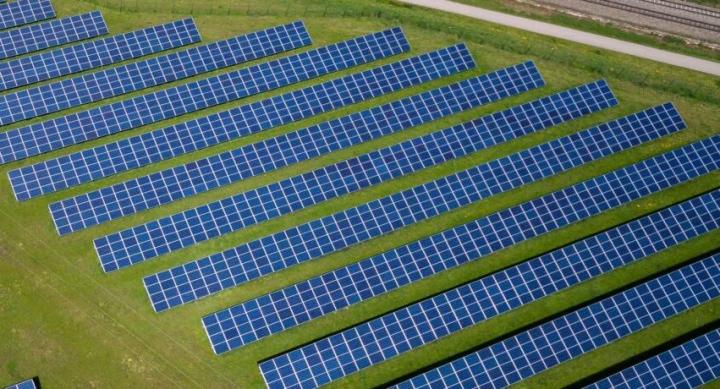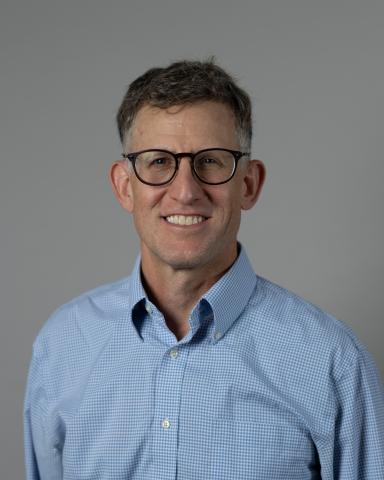
In February 2023, Professors Josh Busby and Nate Jensen of The University of Texas at Austin convened leading scholars to explore the political dynamics of the clean energy transition in the United States and around the world in Go Green Fast, an online workshop hosted by UT Austin and supported by the UT Energy Institute.
The findings of the workshop are especially timely as we come up on the one-year anniversary in mid-August 2023 of the landmark climate legislation, the Inflation Reduction Act (IRA).
For the workshop, scholars produced 14 videos and 17 memos which explore different dimensions of the clean energy transition, including how the Inflation Reduction Act was passed and whether it will work, how to ensure the transition is just for workers and affected communities, should the U.S. decouple supply chains from China, and more.
Co-organizer Dr. Busby commented on the clean energy transition, noting:

“Things are changing fast. Typical energy transitions unfold over 50 to 100 years, but the urgency of the climate challenge means that humanity doesn’t have that kind of time. The transition to zero carbon energy has to be telescoped into a shorter time frame over the next few decades.”
The organizers noted that while market developments in renewables and electric vehicles are favorable, even those developments did not and will not transform the energy landscape without concerted government policy.
In the opening segment of the workshop, scholars explored the political and policy foundations of the Inflation Reduction Act in the United States. Leah Stokes from the University of California Santa Barbara argued that in the lead-up to the passage of the IRA, advocacy groups mobilized to activate public opinion and make climate policies more politically salient to lawmakers. As Jesse Jenkins and Alex Gazmararian of Princeton University noted, political feasibility dictated that the legislation deviated from previous attempts by focusing on incentives for clean energy rather than regulatory sticks.
While the Inflation Reduction Act created a bevy of tax incentives for businesses and individuals, Jonas Nahm of SAIS-Johns Hopkins cautioned that without complementary policies such as workforce training programs, these incentives may underperform. Nathan Jensen of The University of Texas also warned of excessive subsidies for industries as states and localities compete to land new manufacturing facilities.
For their part, Michaël Aklin of the University of Pittsburgh and Sandeep Pai of the Swaniti Initiative talked about the challenges of the just transition, how the transition to clean energy could have a disproportionate impact on communities heavily reliant on employment or income from coal and other fossil fuel-intensive sectors. Dominic Bednar of Arizona State University drew attention to a different aspect of justice--how certain communities, such as communities of color in the United States--suffer from energy poverty and how the transition can attend to their needs.
The politics of the clean energy transition are changing. While advocates have done a good job making it difficult to construct new coal plants around the world, Jennifer Hadden of the University of Maryland notes that clean energy technologies like solar farms also face challenges of community acceptance in some instances, and developers will need strategies of community outreach to develop buy-in for their projects. Hanna Breetz of Arizona State University talks about how the politics of the clean energy transition are changing beyond businesses opposed to the transition and environmentalists in favor.
As national-level politics of the transition are changing, so too are global dynamics. Tom Hale of the University of Oxford notes how new coalitions of private-sector voluntary action are being catalyzed by civil society. Jessica Green from the University of Toronto sees the challenge in terms of how to overcome incumbent industries’ opposition to the transition through financial regulation rather than the regulation of carbon.
The workshop discussed the prospects for and risks of decoupling U.S. supply chains from China. Joanna Lewis of Georgetown University emphasized that too rapid and too deep efforts to de-risk U.S. supply chains could slow down the transition. LBJ Professor Josh Busby suggested national security concerns motivate deeper efforts by the U.S. to “de-risk” dependence on China through domestic production and importing from friendly countries but well short of decoupling.
In the closing segment, the Roosevelt Institute's Todd Tucker suggests that tensions between the U.S. and Europe over the Inflation Reduction Act might be set aside on some level as the two seek to find common ground on collaboration on clean industrial goods such as green steel.
Co-organizer Nate Jensen commented: “We hope that the memos and videos of this project serve as sources of inspiration for research and teaching in this space and provide helpful insight to policymakers as they grapple with the complexities of action at this important moment.”

